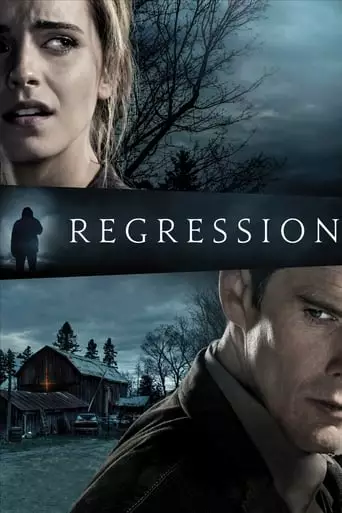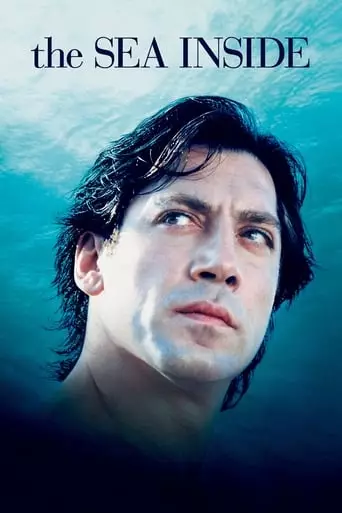Minnesota, 1990. Detective Bruce Kenner investigates the case of young Angela, who accuses her father, John Gray, of an unspeakable crime. When John unexpectedly and without recollection admits guilt, renowned […]

Minnesota, 1990. Detective Bruce Kenner investigates the case of young Angela, who accuses her father, John Gray, of an unspeakable crime. When John unexpectedly and without recollection admits guilt, renowned […]

While doing a thesis about violence, Ángela finds a snuff video where a girl is tortured to death. Soon she discovers that the girl was a former student at her […]

A very handsome man finds the love of his life, but he suffers an accident and needs to have his face rebuilt by surgery after it is severely disfigured. Open […]

Grace is a religious woman who lives in an old house kept dark because her two children, Anne and Nicholas, have a rare sensitivity to light. When the family begins […]

A historical drama set in Roman Egypt, concerning philosopher Hypatia of Alexandria and her relationship with her slave Davus, who is torn between his love for her and the possibility […]

The Sea Inside is about Spaniard Ramón Sampedro, who fought a 30-year campaign to win the right to end his life with dignity. It is the story of Ramón’s relationships […]
Alejandro Amenábar: The Visionary Behind Psychological Thrillers and Emotional Cinema
Alejandro Amenábar is a Spanish-Chilean filmmaker celebrated for his ability to blend psychological depth, philosophical inquiry, and emotional resonance in his films. Known for critically acclaimed works such as The Others (2001) and The Sea Inside (2004), Amenábar has become one of the most prominent voices in international cinema. His mastery of suspense, character-driven storytelling, and exploration of profound existential themes has earned him numerous accolades, including an Academy Award.
Early Life and Education
Alejandro Fernando Amenábar Cantos was born on March 31, 1972, in Santiago, Chile. His family relocated to Madrid, Spain, when he was a year old, escaping political instability following Augusto Pinochet’s rise to power. Growing up, Amenábar displayed a deep interest in the arts, particularly music and cinema.
He studied filmmaking at the Complutense University of Madrid, where he began crafting short films that showcased his burgeoning talent for suspenseful storytelling. His passion for music also played a significant role in shaping his career, as he would later compose the scores for many of his own films.
Breakthrough with Thesis
Amenábar burst onto the film scene with his debut feature, Thesis (1996), a psychological thriller about a university student investigating snuff films. The movie, blending suspense with social commentary on media consumption, won multiple Goya Awards, including Best Film and Best New Director.
Thesis established Amenábar as a filmmaker capable of creating gripping narratives with a unique voice. It also marked the beginning of his collaboration with actor Eduardo Noriega, who would star in his next film.
International Acclaim with Open Your Eyes
In 1997, Amenábar released Abre los Ojos (Open Your Eyes), a sci-fi psychological thriller about reality, identity, and dreams. The film follows César (Eduardo Noriega), a man whose life unravels after a disfiguring accident and a series of surreal, reality-bending events.
The film’s innovative narrative structure and philosophical undertones garnered widespread acclaim, earning Amenábar international recognition. Abre los Ojos was later remade in Hollywood as Vanilla Sky (2001), directed by Cameron Crowe and starring Tom Cruise, who became a vocal admirer of Amenábar’s work.
Hollywood Success with The Others
In 2001, Amenábar made his English-language debut with The Others, a gothic horror film starring Nicole Kidman. Set in a remote mansion during World War II, the film follows a mother and her two light-sensitive children as they experience mysterious and unsettling events.
Praised for its atmospheric tension, intricate plot twists, and Kidman’s riveting performance, The Others became a global sensation. It earned eight Goya Awards, including Best Film, making it one of the few non-Spanish-language films to achieve such recognition.
The film’s success cemented Amenábar’s reputation as a master of suspense, drawing comparisons to Alfred Hitchcock for his ability to craft psychological horror with minimal reliance on visual effects.
Exploring Human Drama with The Sea Inside
Amenábar shifted gears in 2004 with Mar adentro (The Sea Inside), a poignant biographical drama based on the true story of Ramón Sampedro, a quadriplegic who fought for the right to die with dignity. Starring Javier Bardem in a transformative performance, the film explores themes of life, love, and personal freedom.
The Sea Inside received widespread acclaim, winning the Academy Award for Best Foreign Language Film and 14 Goya Awards, including Best Director and Best Film. It showcased Amenábar’s ability to tackle deeply human stories with sensitivity and emotional depth, solidifying his versatility as a filmmaker.
Philosophical and Historical Themes
Amenábar’s later films continued to reflect his interest in philosophy, history, and the human condition:
Agora (2009): A historical epic set in 4th-century Alexandria, the film stars Rachel Weisz as Hypatia, a philosopher and astronomer navigating the rise of religious conflict. Agora explores themes of science, faith, and intolerance, earning praise for its ambition and intellectual depth.
Regression (2015): A psychological thriller starring Ethan Hawke and Emma Watson, the film delves into the dark world of repressed memories and mass hysteria. Though it received mixed reviews, it demonstrated Amenábar’s continued interest in the intersection of psychology and suspense.
While at War (Mientras dure la guerra, 2019): This historical drama revisits Spain’s Civil War through the lens of philosopher Miguel de Unamuno, exploring the moral complexities of supporting or opposing authoritarian regimes. The film earned critical acclaim for its nuanced portrayal of political and ethical dilemmas.
Themes and Style
Amenábar’s films are marked by:
Psychological Depth: His stories often delve into the complexities of the human mind, exploring themes of identity, perception, and morality.
Atmospheric Tension: Whether in horror or drama, Amenábar excels at creating suspense through mood, pacing, and character development rather than relying on overt spectacle.
Philosophical Inquiry: Many of his works tackle existential questions, examining the nature of reality, freedom, and the human spirit.
Musical Sensibility: As a composer, Amenábar uses music to heighten emotion and tension, seamlessly integrating his scores into his storytelling.
Legacy and Influence
Alejandro Amenábar has earned his place as one of the most influential filmmakers of his generation. His ability to navigate diverse genres—from horror to historical drama—while maintaining a distinct voice has inspired filmmakers worldwide.
With a career defined by innovation, emotional resonance, and intellectual rigor, Amenábar continues to push the boundaries of cinema, offering audiences thought-provoking and unforgettable stories.